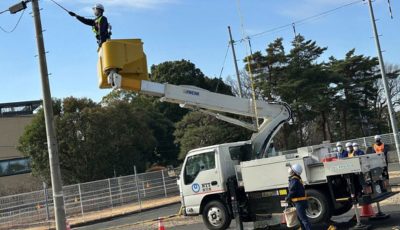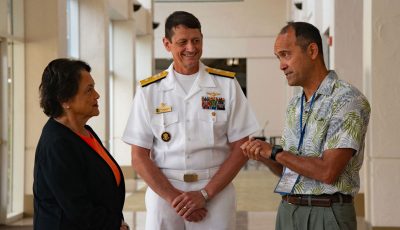Joseph Crisostomo appeals, seeks re-trial
»Habitual offender wants reversal of life imprisonment for kidnapping, raping, killing Romero
Joseph Acosta Crisostomo, a notorious habitual offender who was slapped with a life sentence for the kidnapping, raping, and killing bartender Emerita R. Romero, wants a new trial, saying Superior Court Associate Judge Joseph N. Camacho committed multiple errors during the trial.
Crisostomo, through counsel Janet H. King, has filed an appeal, asking the CNMI Supreme Court to reverse the jury’s verdict and remand this case for a new trial based on alleged multiple abuses of Camacho’s discretion and constitutional violations.
“Here, the combination of all the errors in this case resulted in such significant prejudice that Mr. Crisostomo was deprived of his right to a fair trial,” King said.
King presented 10 issues in the appeal.
First, King said, Camacho abused his discretion by excluding Crisostomo’s motion to admit Dr. David Haymer as an expert witness pursuant to Rule 702 of the Commonwealth Rules of Evidence and the U.S. Supreme Court’s decision in a precedent case.
Second, the lawyer said, Camacho violated the defendant’s Fifth and Sixth Amendment rights when he allowed the prosecution to illegally obtain and use defendant’s footprint and gait while he was in custody awaiting his trial.
Third, she said, Camacho violated defendant’s due process rights when he failed to change the venue of the trial.
Fourth, King said, Camacho abused his discretion when he improperly instructed the jury prior to the evidence in the case and did not repeat those instructions at the end of the case.
Next, King said, the judge abused his discretion when he failed to suppress the identification of Crisostomo on the 911 call as the procedure was tainted and suggestive.
Sixth, the defense lawyer said, it was plain error for the court to fail to declare a mistrial after the jury was repeatedly tainted by the government’s use of Crisostomo’s prior record.
Seventh, she said, Camacho erred in allowing William J. Bodziak to testify as an expert regarding barefoot morphology.
King said Camacho did not establish a finding upon which the CNMI Supreme Court could now review to determine that the judge properly applied the factors in Daubert before admitting Bodziak as an expert.
Under the Daubert doctrine, to testify as an expert, the witness must satisfy the requirements of Rule 702 of the Federal Rules of Evidence.
Next, King said, Camacho erred in denying Crisostomo’s witnesses from testifying via Skype.
King said the judge’s failure to permit counsel to use Skype to bring forth a witness clearly violated defendant’s right to due process to bring relevant material evidence vital to his defense.
Next, King said, Camacho erred in allowing testimony that Crisostomo had indicated he would take a lie detector test then refused.
Finally, King said cumulative errors by the trial judge require reversal.
The lawyer said all of these issues may be looked at individually but taken as a whole the cumulative effect of these errors at trial resulted in Crisostomo being denied his right to a fair trial.
On April 24, 2014, the jury reached a guilty verdict against the then-40-year-old Crisostomo as to the charges of first degree murder, kidnapping, sexual assault in the first degree, and robbery.
Camacho, who presided over the trial and decided the misdemeanor charges, found Crisostomo guilty of assault and battery, and disturbing the peace.
The trial began on April 17, 2014. After deliberating for six hours, the jurors reached a unanimous guilty verdict on April 24, 2014. Camacho also found the defendant guilty of the misdemeanor charges.
On May 28, 2014, Camacho sentenced Crisostomo to life imprisonment.
“Scared, screaming, and begging, bruises and scratches on her arms and legs, violently penetrated and raped, strangled and gasping for air. With her spirit gone, thrown in an abandoned bathroom like a piece of human waste,” said Camacho in describing the last minutes of Romero’s life.
Then-interim chief prosecutor Brian Flaherty and then-assistant attorney general Margo Brown-Badawy called a total of 31 witnesses.
King called one witness. She filed 44 pre-trial motions. Guam lawyers Jeffrey Moots and F. Randall Cunliffe assisted King in the case, but they did not show up during the trial.
Romero, 37, was last seen boarding a car near her house in Garapan in the early morning of Feb. 5, 2012. Two days later, Federal Bureau of Investigation agents found her body in a small bathroom at the abandoned La Fiesta Mall in San Roque/As Matuis. Autopsy showed she was beaten and strangled with a pair of leggings.




























